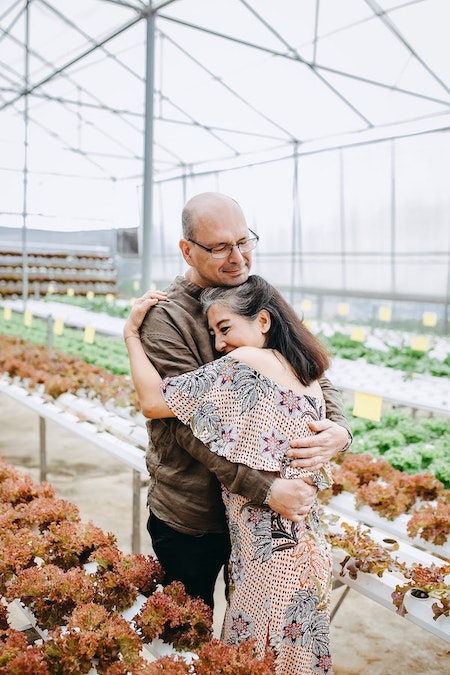Couples Therapy
 Are you struggling as a couple?
Are you struggling as a couple?
● Do you and your partner have trouble communicating?
● Do you sometimes go to bed angry?
● Do little things blow up easily into big arguments?
● Are you drained from frequent arguments?
● Do you often feel misunderstood or taken for granted?
● Are you caught in the same negative patterns again and again?
● Do you miss the friendship, closeness and intimacy you once had?
Every relationship goes through challenges as you deal with life’s ups and downs, and as you both evolve as individuals. But if your connection with one another has become tense or lifeless, there are other options besides splitting up or becoming resigned to a pain-filled or joyless coexistence. I have helped many couples in this kind of situation. If any of this sounds like your relationship, I would like to assist you.
Couples therapy can help.
As a relationship counselor and psychotherapist, I enjoy helping couples heal their wounds, learn better ways of communicating their needs, and discover how to connect with one another in healthy ways. I bring not only my training and experience as a psychotherapist, but also my skills as a mediator and Nonviolent Communication ™ practitioner. Couples counseling can provide the safe, accepting environment and skilled support you and your partner may need to repair your bond and reopen your hearts to one another.
 Some of the benefits of couples therapy:
Some of the benefits of couples therapy:
● Access the power of love as an intention
● Understand yourself, your partner and your relationship better
● Discover where each of you is coming from
● Heal wounds from the past that are coloring your relationship now
● Shift out of blaming yourself and/or your partner
● Become aware of ways you interact that don’t create separation
● Rebuild your relationship so it is based on authenticity, honesty, respect, caring, and compassion
● Find the balance between autonomy and interdependence
Still have some questions about Couples Therapy…
I’m worried that if we really open up about what is bothering us, everything will blow up in the counseling room.
As a couples therapist, I make sure to create a safe place for each person to express their needs and be heard. I’ve had lots of experience as a mediator, as a restorative justice facilitator and as a Nonviolent Communication practitioner, helping people speak and hear from their hearts, no matter how painful the truth. I might stop you or your spouse mid-sentence if I sense the message being spoken will be heard as an attack, and help you translate it into a language that is more likely to be received openly from your partner. As Marshall Rosenberg often said, “Every attack, criticism or judgment is a tragic expression of an unmet need.” I am there to support both of you in speaking and hearing each other’s unmet needs.
I am the one looking into couples therapy, but my partner is resisting. If we do come in, won’t it be a waste of time if we aren’t both on board?

It is very common for one person to want to do couples therapy and the other partner is resistant. The resistant partner often relaxes when he/she realizes that couples therapy is a safe place for them, and they can trust that their needs will be heard and respected. Every human craves to be deeply heard and understood. I am well trained in that area and love to provide that kind of environment for couples.
Won’t you be biased toward one of us?
If you are coming to me for couples therapy, my allegiance is to both of you and your relationship. My task is to help you identify and transform the patterns that are blocking you from enjoying more authenticity, intimacy, warmth and openness not to take sides. I do believe it is important for both of you to feel safe with me, and if one of you didn’t for whatever reason, we would talk about that openly.
What if I’m still not sure?
A trusting therapeutic relationship is an investment in yourself and your wellbeing. If you would like to get to know me and see if we are a match, simply contact me for a free 30-minute consultation by filling out the form below.
“Kate is helping me express what I really want and need much more easily, yet without making any demands. Much more often now, I talk to my husband, even about the most difficult things, in a way that makes both of us feel good, feel like we’re being real, feel like we’re being heard. In the end, we’re both getting what we need. It works with other people too. Kate knows how to help!”
Anonymous
Blog Posts
Their Affair is NOT a Reflection on You: 5 Ways to Rebuild Your Self-Esteem
If you’re like most people recovering from infidelity, you’re likely facing an array of...
10 Tips for Better Couples Communication
There is no secret formula for relationship success. But there is a not-so-secret foundation for...
5 Reasons Why Couples Therapy Should Not be Your Last Hope
So, how does couples therapy sound? Honestly. When you imagine the process of seeking out a...

 Some of the benefits of couples therapy:
Some of the benefits of couples therapy:

